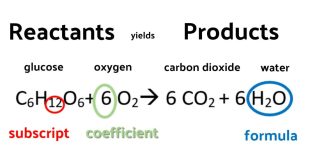Global Prostate Cancer Diagnostics Market
Market Overview: The global prostate cancer diagnostics market was valued at USD 4.17 billion in 2023 and is projected to grow at a CAGR of 12.35% from 2024 to 2032, reaching an estimated value of USD 11.89 billion by 2032. The growth of this market is primarily driven by the increasing incidence of prostate cancer, an aging male population, and the rise in awareness about early detection. Prostate cancer is the most common cancer among men globally, with projections showing a growing number of diagnoses in the coming years.
Request a free sample copy of the report: https://www.renub.com/prostate-cancer-diagnostics-market-p.php
Key Drivers of Market Growth:
- Increasing Incidence of Prostate Cancer:Prostate cancer is expected to rise due to a combination of factors such as lifestyle changes, environmental influences, and genetic predispositions. According to the American Society of Clinical Oncology (ASCO), over 288,300 new prostate cancer cases were diagnosed in 2023 alone. Prostate cancer has a higher incidence in older men, with the median age of diagnosis being 66 years. This increasing prevalence is driving demand for diagnostic tests, including PSA (Prostate-Specific Antigen) screening, MRI scans, and advanced genomic tests.
- Aging Population:With the global population steadily aging, the number of men at risk for prostate cancer is growing. Prostate cancer mainly affects older men, and as the population over 60 years continues to rise globally, particularly in high-income countries, the demand for prostate cancer diagnostics is expected to grow. By 2050, the number of people over the age of 60 is projected to reach 1 billion worldwide, according to the World Health Organization (WHO).
- Rising Awareness of Early Detection:Increasing awareness about the importance of early detection for effective treatment is driving demand for diagnostic tools and tests. Many countries have introduced prostate cancer screening programs, and individuals are increasingly seeking regular check-ups and diagnostic tests. This trend is amplified by the availability of advanced technologies for early detection, which can significantly improve treatment outcomes.
Regional Insights:
-
- North America: North America holds the largest share of the global prostate cancer diagnostics market. The U.S. is a key player in this region, where prostate cancer is a leading cause of cancer-related deaths among men. Government-funded programs like those from the National Cancer Institute (NCI) are driving research into early detection methods. Initiatives such as the Biomarkers Research Groups are focused on identifying new biomarkers to improve prostate cancer diagnosis and treatment.
- Asia-Pacific: The Asia-Pacific region is expected to grow at the fastest rate in the global prostate cancer diagnostics market. Countries like China, Japan, and India are seeing a rise in the incidence of prostate cancer, fueled by increasing adoption of PSA screenings and other diagnostic tools. This trend reflects a shift in healthcare practices, especially in countries with lower Human Development Index (HDI), where prostate cancer awareness and early detection programs are becoming more widespread.
Market Segmentation:
- Type – By Cancer Type:
- Benign Prostatic Hyperplasia:A non-cancerous enlargement of the prostate that can be diagnosed early using various imaging and diagnostic tests.
- Prostatic Adenocarcinoma:The most common form of prostate cancer, often detected using PSA screening and biopsy procedures.
- Small Cell Carcinoma:A rare and aggressive form of prostate cancer that requires advanced diagnostic techniques to identify.
- Others:Includes other less common types of prostate cancers.
- Test Type – By Diagnostic Method:
- Preliminary Tests:These include basic tests like PSA screening and digital rectal exams (DRE) that are used for initial screening.
- Confirmatory Tests:These tests confirm the presence of cancer and include prostate biopsy, MRI, and genetic tests.
- End-User – By Healthcare Facility:
- Hospitals:Major centers where comprehensive prostate cancer diagnostic services, including advanced imaging and biopsy, are provided.
- Diagnostic Centers:Specialized diagnostic centers focusing on cancer detection using the latest testing technologies.
- Research Institutes:Facilities involved in clinical research and the development of new diagnostic tools.
- Others:Includes private clinics and outpatient centers.
Key Market Players:
Several companies dominate the global prostate cancer diagnostics market, offering a variety of diagnostic tests, devices, and technologies:
- Hoffman-La Roche AG:A leader in the diagnostic market, Roche offers a wide range of prostate cancer tests, including molecular tests and immunoassays.
- Bayer AG:Known for its pharmaceutical and diagnostic solutions, Bayer offers advanced diagnostic platforms for prostate cancer detection.
- Thermo Fisher Scientific Inc.:Provides a range of diagnostic tools, including genomic testing kits, to help with the early detection and monitoring of prostate cancer.
- Abbott Laboratories Inc.:A key player in providing diagnostic solutions, including advanced molecular and imaging diagnostics for prostate cancer.
- Siemens Healthineers AG:A major player in medical imaging, Siemens offers state-of-the-art MRI and ultrasound solutions for prostate cancer diagnosis.
- Becton Dickinson and Company:Specializes in diagnostic devices, including prostate cancer biopsy tools and sample collection devices.
- Agilent Technologies Inc.:Focuses on molecular diagnostics and cancer biomarkers, contributing significantly to the prostate cancer diagnostics landscape.
- Hologic Inc.:Offers diagnostic products and imaging technologies, including those used for prostate cancer detection and diagnosis.
- Qiagen N.V.:Provides molecular testing kits and solutions for the early detection of prostate cancer.
- OPKO Health Inc.:Focuses on offering proprietary tests and diagnostic tools for prostate cancer detection and management.
Key Market Developments:
-
- MDxHealth SA and University of Oxford Partnership (September 2023): Focuses on the Genomic Prostate Score (GPS) test, which is used to monitor prostate cancer progression following treatment.
- FDA Approval for FoundationOneCDx (August 2023): FoundationOneCDx was authorized as a diagnostic for metastatic castration-resistant prostate cancer with BRCA-positive mutations.
- Qritive AI-Powered Diagnostic Tool Launch (March 2023): Qritive unveiled QAi Prostate, an advanced AI-based tool for more accurate and efficient prostate cancer diagnoses.
Related Report :
About the Company:
Renub Research is a Market Research and Consulting Company. We have more than 15 years of experience especially in international Business-to-Business Researches, Surveys and Consulting. We provide a wide range of business research solutions that helps companies in making better business decisions. We partner with clients in all sectors and regions to identify their highest-value opportunities, address their most critical challenges, and transform their businesses. Our wide clientele comprises major players in Healthcare, Travel and Tourism, Food Beverages, Power Energy, Information Technology, Telecom Internet, Chemical, Logistics Automotive, Consumer Goods Retail, Building, and Construction, Agriculture. Our core team is comprised of experienced people holding graduate, postgraduate, and Ph.D. degrees in Finance, Marketing, Human Resource, Bio-Technology, Medicine, Information Technology, Environmental Science, and many more.
Media Contact:
Company Name: Renub Research
Contact Person: Rajat Gupta, Marketing Manager
Phone No: +91-120-421-9822 (IND) | +1-478-202-3244 (USA)
Email: rajat@renub.com
 Daily Blogger News Stay updated with the latest trends and insights. Your reliable source for daily updates and information.
Daily Blogger News Stay updated with the latest trends and insights. Your reliable source for daily updates and information.







